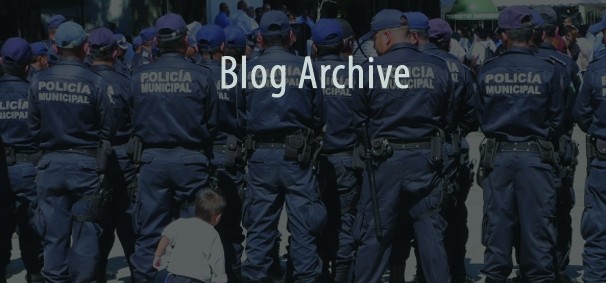President Joseph Kabila has recently indicated that he would seek the withdrawal of MONUC, the UN mission in the Democratic Republic of the Congo (DRC) in time for the country’s 50th anniversary in 2011, despite a consensus from the international community that the Congolese security forces are not yet ready to provide security for their citizens.
Among the myriad challenges threatening security sector reform (SSR) in the DRC are the ongoing conflict in the east of the country, a centralized and autocratic political system, a deeply-ingrained culture of impunity in the police and armed forces, an abundance of small arms and light weapons (SALW), and chronic corruption and funding shortfalls in the justice sector. Even taking this challenging context into consideration, it is disheartening that despite a US$1.4 billion UN mission, extensive bilateral aid programs, and a decade of international involvement, the International Crisis Group reports that reforms in the security sector have made “no significant progress” in the DRC.
While reform goals may have been too ambitious—the SSR process cannot be expected to outpace the DRC’s ability to fulfill its basic functions as a state—the lack of progress nevertheless reflects the shortcomings of the international community’s intervention. A report from the Conflict Research Unit of the Clingendael Institute, “Supporting SSR in the DRC: Between a Rock and a Hard Place,” provides a very useful analysis of donor approaches to SSR in the DRC, arguing that an overall lack of coordination between donors and fundamental differences between local and donor priorities has led to a patchwork reform process: “essentially a collection of loosely-connected, largely donor-driven activities, implemented in isolation from essential political reforms” (iii). The report identifies many areas for improvement in the justice, police and army reform pillars; however I will focus on the implications of the lack of coordination in donor funding and programming on the DRC’s SSR process.
The report highlights clear differences between the SSR priorities of the international community and Joseph Kabila’s government, with the international community’s approach largely technical and organizational, concerned primarily with oversight and accountability within the security sector. The DRC government, on the other hand, tends to be much more interested in programs that increase the short-term operational effectiveness of the security forces, in particular the army, reflecting the traditional role of the security forces as protectors of the governing elite rather than providers of security to the population.
The international community’s approach to SSR financing, tending towards bilateral agreements rather than coordinated, multilateral programs, has allowed the Kabila government to selectively embrace certain reforms while delaying or avoiding others. The report notes that “working bilaterally often makes it more difficult for donors to develop (and stick to) a common position with regard to the importance of governance-related reforms which are key to enhancing accountability” (27). The result is a proliferation of bilateral programs reflecting the government’s “train and equip” bias.
In police and armed forces reform, this approach favours operational training, the construction of infrastructure, and the furnishing of military hardware over organizational reform, for instance in the area of military justice. Surprisingly, the train and equip mentality is even evident in the justice system reform process. Faced with extreme budget shortfalls (the justice budget represented only 0.22% of the total state budget in 2009), the Congolese judiciary “sees international aid as a means of improving its daily work-life” (10), resulting in a high demand for infrastructure and a low demand for training. The report concludes that “the institutional support programs succeed in constructing and equipping (without sustainability) but not in changing judicial practices and even less in changing mentalities” (10). Donors have reconstructed courthouses and trained magistrates but have made little progress in improving the courts’ internal operations.
The justice system reform process encapsulates the DRC government’s general disregard for oversight and accountability mechanisms, and lack of appetite for fundamental reform. According to the report, the government’s support for justice reform is largely rhetorical, while real reform “is being delayed by both parliament and the executive branch who see an independent judiciary as a threat” (10). This situation threatens the broader SSR process and limits the security sector’s ability to provide tangible security benefits to Congolese citizens. The justice system, after all, plays a central role in addressing two critical and related problems: the dysfunction of the criminal justice process as a whole, and the culture of impunity in the police and armed forces.
Tags: DRC, justice reform, Military Reform, MONUC, Police Reform






 Visit the Centre for
Visit the Centre for